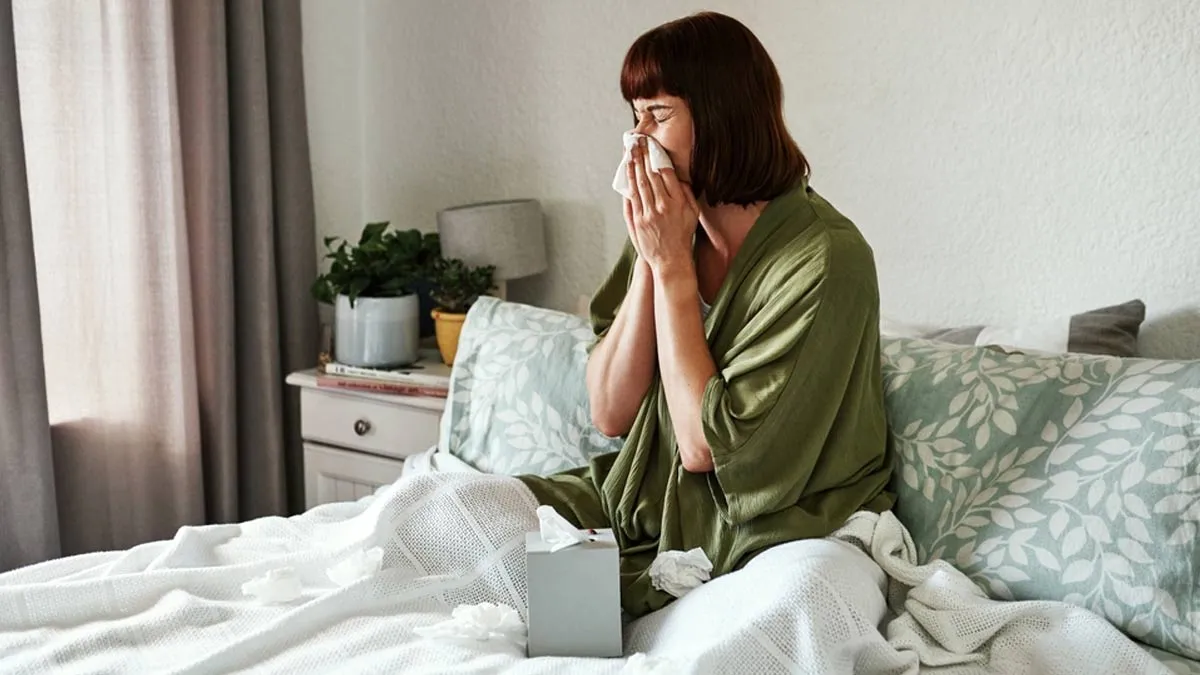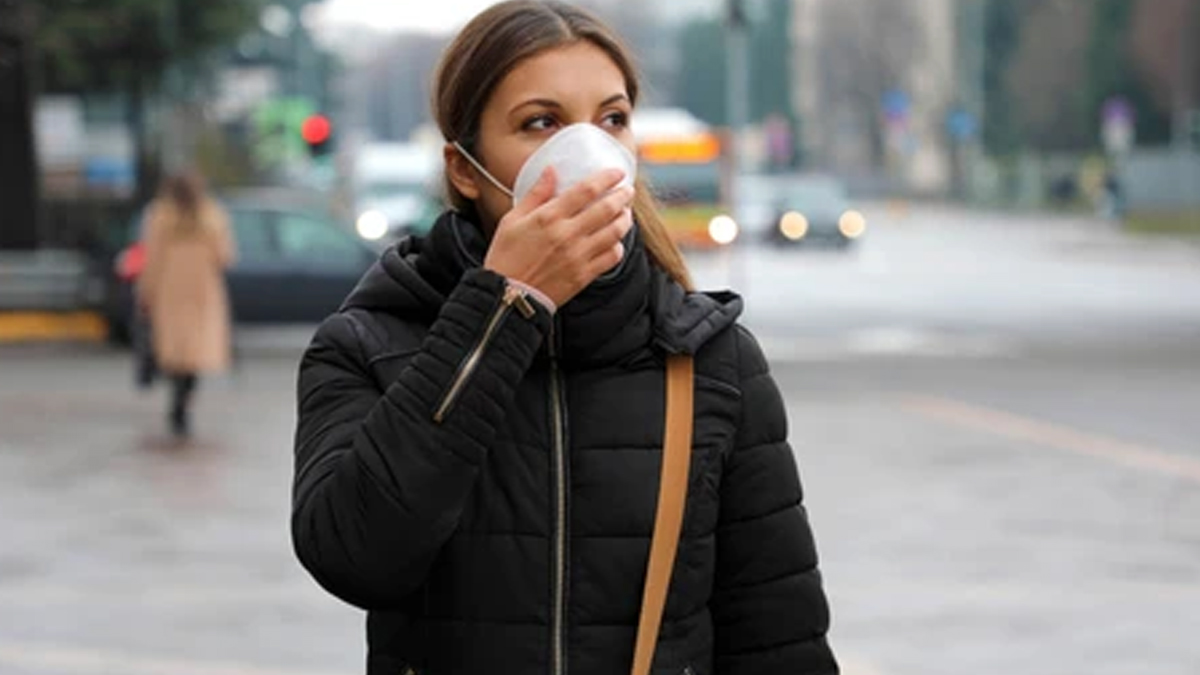
As the monsoon sweeps in with cooler winds and much-needed rain, it also brings an uptick in seasonal illnesses, especially viral fevers, colds, and the infamous monsoon flu. But in a post-pandemic world, even a simple sneeze can spark a flurry of worry: Is it just the flu? Or could it be Covid again?
Table of Content:-
It's a genuine concern. Both Covid-19 and monsoon-related flu illnesses often present with overlapping symptoms: fever, body aches, fatigue, and sore throat. The confusion isn’t just limited to individuals; even seasoned doctors sometimes rely on lab tests to be sure.
So how do you tell one from the other? And what steps should you take to protect yourself and your loved ones this season? We spoke to Dr Siri M Kamath, Consultant - Internal Medicine, Gleneagles BGS Hospital, Kengeri, Bengaluru, who explained the difference between Covid-19 and monsoon flu.
COVID-19 Vs Monsoon Flu: The Confusion

“Covid-19 is caused by the SARS-CoV-2 virus, while the flu is generally caused by influenza viruses or other seasonal respiratory viruses that flourish during humid monsoon conditions. Both are contagious, airborne and affect the respiratory system. Hence, the symptoms can look strikingly similar, especially in the early stages,” said Dr Kamath.
Moreover, the Omicron variant and its sub-lineages, which continue to circulate in mild waves, have significantly blurred the lines between Covid and regular flu. Many recent Covid cases present with mild or no symptoms at all, especially among vaccinated individuals.
Also Read: Stay Healthy on the Move: Top 10 Hygiene Protocols to Keep COVID-19 Away While Travelling
Symptoms: What Overlaps and What Doesn’t
Here’s a general comparison of common symptoms seen in monsoon flu versus Covid-19:
Symptoms

Fever
- Monsoon Flu: Common
- Covid-19: Common
Body aches
- Monsoon Flu: Common
- Covid-19: Common
Cough
- Monsoon Flu: Common
- Covid-19: Common (dry cough)
Sore Throat
- Monsoon Flu: Common
- Covid-19: Common
Runny Nose
- Monsoon Flu: Common
- Covid-19: Common
Sneezing
- Monsoon Flu: Common
- Covid-19: Common
Loss of smell/taste
- Monsoon Flu: Rare
- Covid-19: More specific to Covid-19
Shortness of breath
- Monsoon Flu: Rare (unless complications)
- Covid-19: Possible in moderate to severe cases
Headache
- Monsoon Flu: Possible
- Covid-19: Possible
Diarrhoea
- Monsoon Flu: Rare
- Covid-19: Reported in some cases
Sudden fatigue
- Monsoon Flu: Occasional
- Covid-19: Common
Loss of smell or taste was a hallmark of earlier Covid strains, though it’s less common now. Breathlessness, chest pain, or oxygen desaturation tend to be more concerning red flags for Covid than seasonal flu.
What About Testing?

- Rapid Antigen Tests (RATs) or RT-PCR can confirm Covid-19.
- Flu panels are also available at diagnostic centres to detect influenza A or B and other viral strains.
A study in The Lancet Respiratory Medicine revealed that COVID-19 patients had a higher hospitalisation rate compared to those with seasonal influenza.
If you’re in a vulnerable category, elderly, immunocompromised, or dealing with pre-existing health conditions, it’s especially important to test early so treatment can begin promptly.
Also Read: The Post-COVID Immune Puzzle: Why Some People Still Fall Sick Too Often
Treatment: Similar yet different
“Both illnesses require supportive care: rest, hydration, fever management, and isolation to prevent spread. But if it turns out to be Covid, especially in moderate cases, you may need closer monitoring for oxygen levels, antiviral drugs, or hospitalisation if complications arise,” added Dr Kamath.
Also, some flu cases may escalate into secondary infections like pneumonia or sinusitis, needing antibiotics (only if a bacterial infection is confirmed). Self-medication, especially with antibiotics or steroids, should be strictly avoided without a doctor’s advice.
Preventing Covid and Monsoon Flu

- Vaccination: Make sure you’re up to date on your Covid boosters and consider getting a flu shot annually. It won’t prevent all illnesses, but it significantly reduces the severity.
- Hygiene habits: Keep up the basics: handwashing, mask-wearing in crowded spaces, and avoiding contact with sick individuals.
- Healthy gut and immunity: Monsoon can mess with digestion too. Focus on a diet rich in seasonal fruits, warm-cooked meals, and immunity boosters like ginger, turmeric, and vitamin C.
When To Seek Medical Attention?
Mild symptoms usually resolve on their own, but reach out to a doctor if you experience:
- Difficulty breathing
- Chest pain or tightness
- High-grade fever for more than 3 days
- Confusion, lethargy, or severe weakness
- Oxygen levels dropping below 94% (check with a pulse oximeter)
Bottomline
Dr Kamath concluded, “It’s completely normal to feel anxious about symptoms, especially after the trauma of the Covid-19 pandemic. But the best approach is to stay informed, get tested if needed, and take timely action. Monsoon is a beautiful season, don’t let uncertainty around illness steal its joy. Take precautions, stay dry, and listen to your body.”
[Disclaimer: This article contains information provided by an expert and is for informational purposes only. Hence, we advise you to consult your professional if you are dealing with any health issue to avoid complications.]
Also watch this video
Read Next
Numbness On One Side Of The Body To Difficulty Speaking, Neurological Signs To Spot Stroke Early
How we keep this article up to date:
We work with experts and keep a close eye on the latest in health and wellness. Whenever there is a new research or helpful information, we update our articles with accurate and useful advice.
Current Version